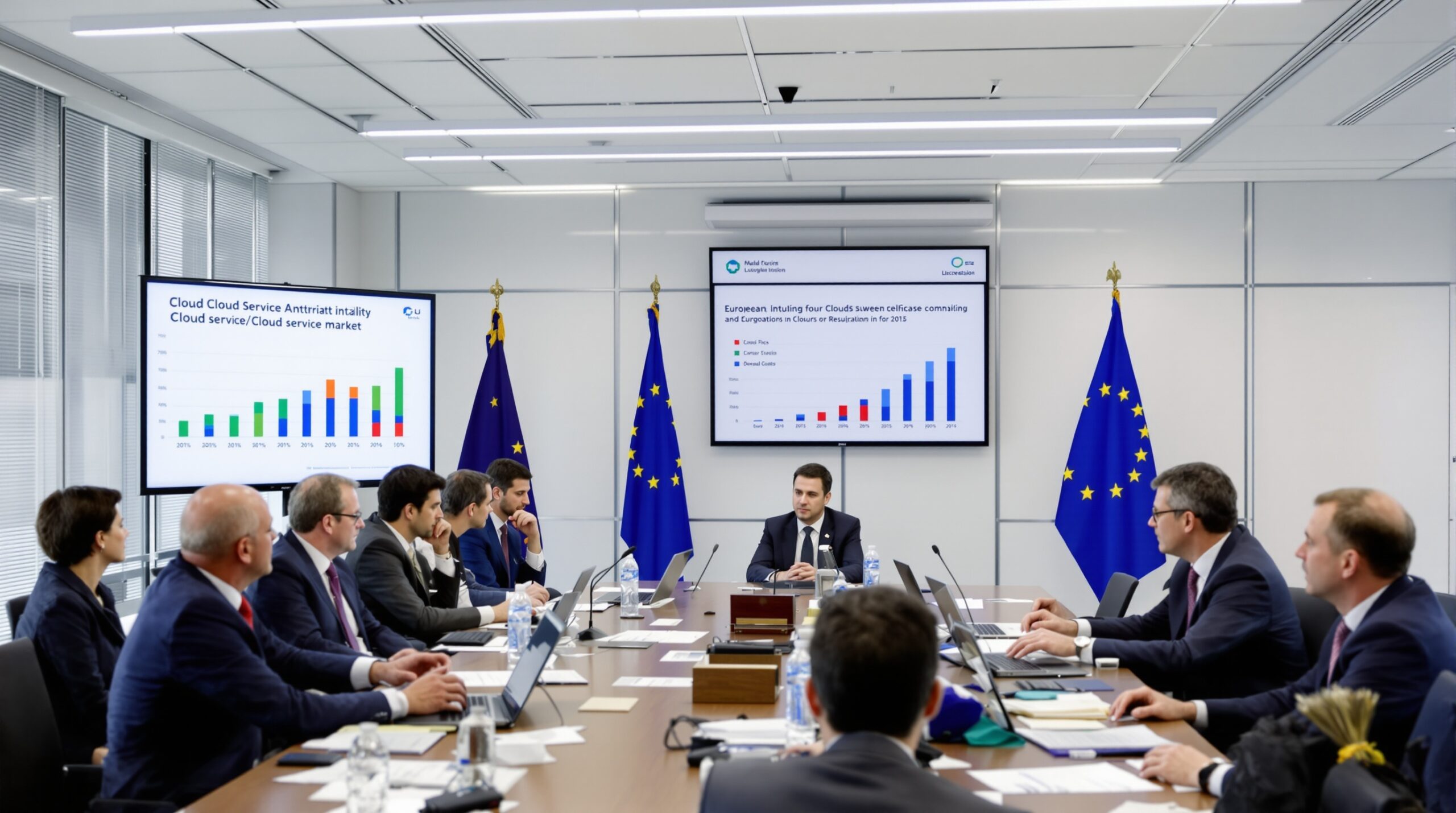The European Union has launched a significant antitrust investigation into the cloud service sector. This probe specifically targets concerns about potential market dominance and anti-competitive practices by leading cloud service providers. The move follows growing apprehension about the concentration of cloud computing power in the hands of a few technology giants.
Concerns Over Market Dominance
Regulators and businesses across Europe worry that a handful of large providers control much of the cloud infrastructure. These firms, including Amazon Web Services, Microsoft Azure, and Google Cloud, command significant market share. Their business models and contracts often shape how European companies access and use digital services.
European policymakers fear that such concentration may stifle competition, innovation, and consumer choice. Smaller cloud providers struggle to compete with the broad offerings, pricing strategies, and global reach of these giants. As digital services become essential for operations, the implications for fair competition intensify.
The EU’s focus lies not just on market power but also on contractual practices, interoperability barriers, and potential lock-in effects faced by customers.
Scope of the Investigation
The European Commission’s antitrust probe covers a broad range of issues within the cloud ecosystem. Investigators seek to understand whether dominant players engage in exclusionary practices. They are examining contract terms, technical barriers to switching, and the cost structure imposed on clients who wish to migrate their services.
Specific attention goes to “egress fees,” which are charges levied when companies move their data from one cloud provider to another. These fees can deter switching and may lock customers into long-term relationships. The Commission is also evaluating whether bundled services unfairly disadvantage competitors.
Officials have sent detailed questionnaires to industry players, public sector agencies, and stakeholders. Responses will help gauge the competitive landscape and identify potential abuses of market power.
Relevant Legal Framework
This antitrust probe draws upon the EU’s longstanding competition rules. The Treaty on the Functioning of the European Union prohibits companies from abusing a dominant market position. Such abuses may include blocking access, tying products together, or imposing unfair conditions.
Recent EU digital policies reinforce this legal backdrop. The Digital Markets Act (DMA) and the Digital Services Act (DSA) both emphasize fairness, competition, and user empowerment in digital markets. By leveraging these authorities, the Commission aims to address potential harms before they solidify.
Possible Outcomes
If investigators uncover abuse, the Commission may require behavioral or structural changes in the cloud sector. Remedies could include mandating greater data portability, lowering switching costs, and requiring fairer contractual terms for cloud customers. Fines and penalties are also on the table if violations are found.
Conversely, if no wrongdoing emerges, the probe could reaffirm current practices and provide guidance for future competition cases. Any outcome will set significant precedents for digital infrastructure competition within the EU and globally.
Why Cloud Services Matter
Cloud services underpin the digital transformation of European businesses, governments, and organizations. They provide computing power, storage, and applications delivered over the internet. This flexibility allows entities of all sizes to innovate, scale operations, and streamline IT costs.
From healthcare records to financial transactions, vast amounts of sensitive data now live in the cloud. European regulations, such as the General Data Protection Regulation (GDPR), impose specific requirements on how this data is managed and protected.
Given cloud computing’s centrality to economic activity, any distortion in the market can have widespread and lasting effects. The EU’s vigilance reflects the importance of digital sovereignty and the need to maintain a level competitive playing field.
Responses from Cloud Providers
Major cloud providers assert that competition remains vibrant and that their practices foster innovation for clients. They point to falling prices, expanding service offerings, and improved cybersecurity as evidence of a healthy market. Many companies, however, quietly voice concerns about contracts and the complexity of migrating data to alternative providers.
Amazon, Microsoft, and Google have pledged full cooperation with European authorities. They highlight their investments in local data centers and compliance with European privacy laws. These companies argue that client choice and multi-cloud strategies are already baked into their platforms.
Industry groups, meanwhile, have welcomed the antitrust probe as a chance for transparency and fairer competition. As the investigation proceeds, their feedback will help shape potential regulatory reforms and industry norms.
Timeline and Next Steps
The European Commission’s inquiry is expected to span several months, gathering input from a wide range of participants. Initial findings could emerge by the end of the year, with formal enforcement actions following if evidence of anti-competitive conduct appears. The process may inspire new guidelines or rules tailored to the digital infrastructure sector.
The EU will also monitor global developments in cloud competition. Other jurisdictions, such as the United States and the United Kingdom, have launched related probes or passed new digital competition laws. Cooperation across borders may increase as technology markets become more intertwined.
Implications for European Businesses and Consumers
Entrepreneurs, startups, and established enterprises watch this probe closely. The outcome could influence their technology procurement choices and bargaining power. Lower barriers to switching and greater transparency in pricing would benefit both business customers and end-users.
Consumers, though less directly affected, would see gains from more competitive and innovative digital services. As cloud computing becomes woven into daily life, actions taken today will shape the market for years to come.
Conclusion: Shaping the Future of Cloud Services
The EU’s antitrust investigation into cloud service dominance represents a pivotal moment for the technology sector. As digital infrastructure grows increasingly vital, ensuring fair competition is a top priority. Whether the outcome yields new rules or affirms existing practices, the investigation will influence how Europeans access, manage, and trust the cloud.
Policymakers, providers, and users alike now await the next phase of the inquiry. The balance between innovation and fair competition will be at the heart of its findings. Europe’s approach may ultimately serve as a model for global digital market regulation.


